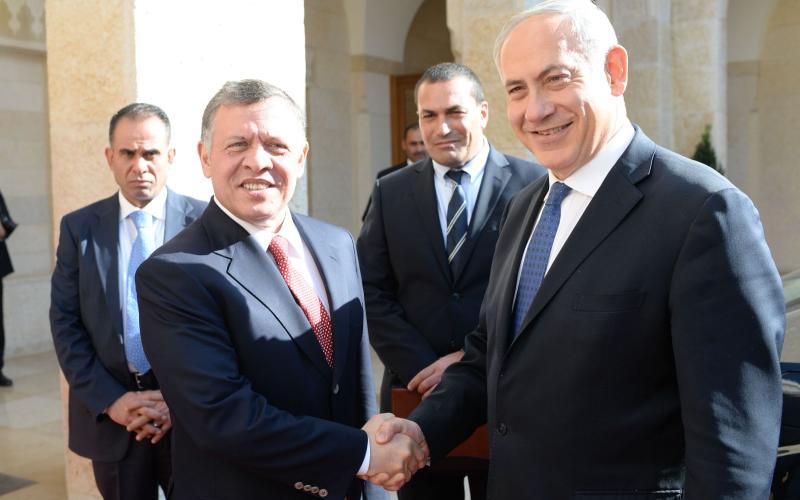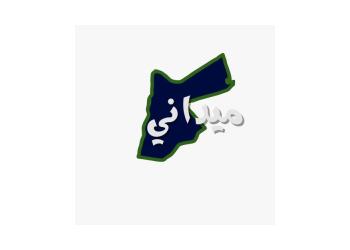- الأردن و 18 دولة يدينون سلسلة قرارات الاحتلال الإسرائيلي الأخيرة التي تُدخل توسّعات واسعة النطاق على السيطرة الإسرائيلية غير القانونية على الضفة الغربية
- رئيس كتلة الميثاق النيابية، النائب إبراهيم الطراونة، يقول إن الحكومة ستدرس، الثلاثاء، ردود فعل الشارع الأردني على مشروع قانون الضمان الاجتماعي، ويؤكد إن الحكومة وعدت بإجراء تعديلات على مسودة مشروع القانون
- ادارة السير تدعو مستخدمي بعض الطرق في المملكة لأخد اقصى درجات الحيطة والحذر أثناء قيادة مركباتهم، وذلك بسبب تشكل الضباب في عدد من المواقع وتدني مدى الرؤية الأفقية
- وقوع حادث تدهور على طريق الحسا، أسفر عن إصابتين وصفت حالتهما بالمتوسطة، حيث جرى إسعاف المصابين إلى مستشفى الطفيلة الحكومي
- الوكالة العربية السورية للأنباء (سانا) تقول أن مسلحي تنظيم داعش الإرهابي قتلوا أربعة من أفراد الأمن التابعين للحكومة في شمال سوريا الاثنين
- تعرفات جمركية أميركية جديدة على السلع المستوردة تدخل حيز التنفيذ الثلاثاء، في ظل سعي الرئيس الأميركي دونالد ترامب لإعادة صياغة أجندته التجارية
- يكون الطقس الثلاثاء باردا نسبيا وغائما جزئيا إلى غائم، ويتوقع هطل زخات من المطر بين الحين والآخر في شمال ووسط المملكة والأجزاء الجنوبية الغربية
Why should we let Israeli “leaks” tell us about Jordan’s position?

Jordanian-Israeli relations have come under severe strain in recent days due to the settler incursions against Al-Aqsa Mosque and the worshippers inside, Axios revealed. The news outlet carried comments from American and Israeli officials saying that Jordan has taken an “extreme line” on the intrusions, and describing Jordanian foreign minister Ayman al-Safadi as “livid.” While the site mentioned that the Israelis sought the help of the Americans and Emiratis to calm down Jordanian rhetoric, especially Safadi’s rhetoric, Safadi responded that it was Israeli practices stirring up tension and problems.
Funnily enough, one of the Israeli officials described Safadi as the “Ben Gvir of Jordan,” referring to the Israeli security minister known for religious and political extremism. And it is well-known that Safadi is as far as one can be from these labels — religious and political extremism — but is known for his clear position on Jerusalem and the Palestinian issue. These positions were displayed prominently during the clash between Jordan and the Trump administration over the U.S. Embassy move to Jerusalem, the “deal of the century,” and the American trend towards fully adopting the extreme right-wing Israeli line.
It’s an honorable position for Jordan to take, the least it can do in the face of a right-wing Israeli government. Ironically, propaganda from across the political spectrum often accuses Jordan of taking a different line behind the scenes, of appeasement and compromise, but this Israeli “leak” confirms the opposite. Describing Safadi as the “Ben Gvir of Jordan” is a point in his favor and in Jordan’s favor, since it came from Zionist media. This old stance against the foreign minister is from the Israeli government, which always complained about Safadi and accused him of being a Jordanian “hawk,” especially during the dangerous Trump-Kushner era and the pressure on Jordan to either moderate its discourse or accept the “deal of the century.”
But the real question is: why are we waiting for the Israeli media to tell us important details about the Jordanian position? Why was it not leaked through Jordanian media instead of Israeli media? This is almost an “eternal” problem for Jordanian officials, because they do not believe in the media, and its vital role in creating leverage and reflecting official points of view through unofficial channels. Media atrophy is a scourge that has contributed many times to distorting and weakening Jordan’s image, strengthening counter-narratives [against Jordan], and mobilizing public opinion in that direction!
At the Aqaba Conference — although I am not a supporter and was not convinced by the arguments for holding it — Jordanians and Palestinians were left with whatever Israeli media broadcast and put into the public space. We did not get an alternative narrative, even though [Jordanian] decision-makers have justifications, lengthy explanations, analyses, and narratives regarding what happened at the Aqaba meeting and the strategic and tactical goals that moved Jordan to hold the meeting, including pressuring the Netanyahu government and blowing it up from within, and coordinating with the U.S. administration whose relationship with the current Israeli government is already tense.
The real problem is a lack of awareness among Jordanian officials about the importance of media narratives in building up the country’s diplomatic position. The issue is not only winning over local or even Palestinian and broader Arab public opinion, but rather the very strength of the state’s position. Today, the media and the online world have become a major theater of power, which often outweighs military force.
Jordan has a persistent media narrative crisis. [The media’s] importance for Jordanian policy, foreign and domestic, is underestimated. This crisis is like a “black hole” that has damaged Jordan’s image, internally and externally. It has unfortunately built up to create the impression that Jordan is always sitting in the place of the accused. In short, Jordanian and Arab political forces have been propagating this image for a long time, because officials are unaware of the importance of media, message, and narrative in building up political power.
alaraby












































